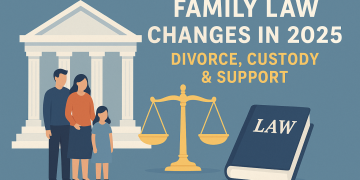Data privacy laws you need to know in 2025 are stronger and broader than ever before. These laws shape how businesses collect, store, and use personal data. They also give people more control over their information. For companies, following these rules is no longer optional—it’s essential.
In this guide, we’ll break down the most important privacy laws worldwide. We’ll cover GDPR, CCPA, and several other global regulations. More importantly, we’ll explain what these laws mean for your business and how you can stay compliant this year.
1) GDPR (European Union)
The General Data Protection Regulation, known as GDPR, remains the most influential privacy law in the world. It applies not only to businesses in the EU but also to companies outside it. For example, if a U.S. company offers services to people in Europe, GDPR applies to that company as well.
This law sets strict rules about data consent, transparency, storage, and transfers. As a result, businesses must clearly explain how they use data. They must also give users the option to access, correct, or delete their information.
Tip: Always tell users why you collect their data, how long you keep it, and how they can remove it.
2) CCPA / CPRA (California)
The California Consumer Privacy Act (CCPA) and its update, the CPRA, protect California residents. These laws give people the right to see what data is collected about them. In addition, they allow users to delete or limit how companies use that information.
CCPA/CPRA applies to businesses that meet certain revenue or data volume thresholds. Therefore, even companies outside California may have to comply if they serve California customers.
3) More U.S. State Privacy Laws
Other U.S. states are following California’s lead. For instance, Colorado and Texas have their own privacy laws. These laws give people similar rights and set new rules for businesses.
- Colorado Privacy Act (CPA): Updates in 2025 focus on clearer rules and enforcement.
- Texas Data Privacy and Security Act (TDPSA): Expands notice and data handling obligations for many companies.
As a result, companies must now keep track of multiple state laws at once.
4) India: Digital Personal Data Protection Act
India’s DPDP Act came into effect recently. It aims to give individuals more control over their personal data. For example, companies must now get clear consent before collecting information. They must also respond quickly to requests for data deletion.
5) China: PIPL
China’s Personal Information Protection Law (PIPL) is another powerful regulation. It focuses on consent, cross-border data transfers, and sensitive personal information. Because of this, companies doing business in China must carefully plan their data handling practices.
6) Brazil: LGPD
Brazil’s LGPD has many similarities to GDPR. It gives individuals strong privacy rights and requires companies to be transparent. Moreover, it allows regulators to issue fines for violations. Compliance is now essential for any business working with Brazilian customers.
7) UAE: Federal Data Protection Law
The UAE has introduced a federal data protection law known as the PDPL. It covers companies inside and outside the UAE that handle personal data. In particular, it sets clear rules on consent, security, and cross-border data transfers.
8) Other Laws to Watch
- United Kingdom GDPR continues after Brexit with its own regulator.
- Singapore’s PDPA and Australia’s Privacy Act are being updated.
- Many countries are creating or expanding privacy rules this year.
Therefore, global companies must build flexible privacy programs to meet different legal requirements.
Practical Compliance Tips
- Map your data: Know what personal data you collect and why.
- Update your privacy policy: Keep it simple and easy to read.
- Get clear consent: Always ask before collecting sensitive information.
- Handle user requests quickly: Let people access, correct, or delete their data.
- Review vendor contracts: Make sure partners follow the same rules.
- Strengthen security: Use encryption, access controls, and regular testing.
- Train your team: Help staff understand and follow privacy rules.
Pro Tip: Privacy compliance builds trust. It also helps avoid expensive fines and protects your brand reputation.
FAQ
Do these laws apply if my company is not in those countries?
Yes, many of these laws apply across borders. If your business serves customers in these regions, you must follow their rules.
What changed in 2025?
Several regions have strengthened their privacy laws. For example, Colorado and Texas added new obligations. The UAE and India also rolled out more detailed frameworks. As a result, global compliance has become even more important.
Why should small businesses care?
Privacy laws don’t just affect big companies. Even small websites and e-commerce stores must comply if they collect personal information.
Disclaimer: This article is for general information only and does not replace legal advice. Always consult a privacy lawyer if you’re unsure of your obligations.
© 2025 OmarosaOmarosa.com — All rights reserved.









